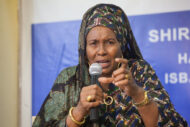

BERLIN: Denmark, Finland and New Zealand tied for the first place in Transparency International’s 2012 index of the least corrupt countries.
Somalia, North Korea and Afghanistan are tied at the bottom of the index, once again facing the ignominy of being the most corrupt countries in the world.
The countries worst hit by the European financial crisis are also perceived as being among the most corrupt in Western Europe, and those perceptions appear to be getting increasingly negative, said the report released on Wednesday.
The index shows Spain, Portugal, Italy and Greece with the lowest scores in western Europe.
India is on 94th position. Germany came in at 13th and Japan remained at 17. The US ranked 19th in 2012. China ranked 80th after 75th in 2011. Botswana again captured the title of Africa’s least corrupt nation.
The 2012 index ranks 176 countries by their perceived levels of public sector corruption. The index assigns scores of between one and 100, 1 being highly corrupt and 100 clean.
Greece seen as most corrupt in EU
On a scale newly introduced for this year’s report, where 0 is “highly corrupt” and 100 is “very clean,” Spain was ranked highest of the four in place 30 with a score of 65. Portugal followed in place 33 with a score of 63, followed by Italy in place 72 with a score of 42 and Greece in 94th place with a score of 36.
Other European Union countries also fared poorly, with Bulgaria, Romania, Slovakia, Latvia and the Czech Republic all scoring less than 50.
The Greek numbers, which put it in 94th place on the ranking — 14 places below last year — stand out in particular, Koch said.
“Greece, of course, at place 94, is the lowest state in the European Union,” she said. “It’s ranked lower than countries like Colombia, Benin and Zambia … which gives you pause for thought.”
The index measures the perception of corruption in the public sector and not the financial sector, but Transparency’s Europe director Anne Koch told The Associated Press the results clearly indicate that people in countries worst hit by the crisis perceive corruption to be widespread.
“It seems to me to be quite blatantly obvious that the lack of transparency in public finances in these four countries has been reflected in the figures,” she said.
Two-thirds of the 176 countries ranked scored below 50, which Transparency said indicates a widespread need for more openness in public institutions and more accountability for officials.
“Governments need to integrate anti-corruption actions into all public decision-making,” Transparency International head Huguette Labelle said. “Priorities include better rules on lobbying and political financing, making public spending and contracting more transparent and making public bodies more accountable to people.”
Middle East
In other significant findings, Egypt fell from 112th last year to 118th place this year with a score of 32 — indicating concerns about the new government are even stronger about two years after the end of Hosni Mubarak’s rule.
“This week’s events in Cairo amply demonstrate that the endemic political issues that drove people to the streets in Egypt are still valid,” Transparency’s Middle East and North Africa Director Christophe Wilcke said. “Egypt’s score is another reminder to the country’s leaders that despite the revolution, they have to fight corruption if they are to win the people’s trust and succeed in transitioning to democracy.”
The survey, which was first conducted in 1995, draws on a variety of sources that capture perceptions of corruption, including World Bank and World Economic Forum assessments, the African Development Bank’s governance ratings, and Transparency International’s own Bribe Payers Survey.
Afghanistan, North Korea and Somalia were ranked the worst overall on this year’s list, all tied with a rating of just eight. Denmark, Finland and New Zealand were thought of as least corrupt with scores of 90.

 All Posts
All Posts









